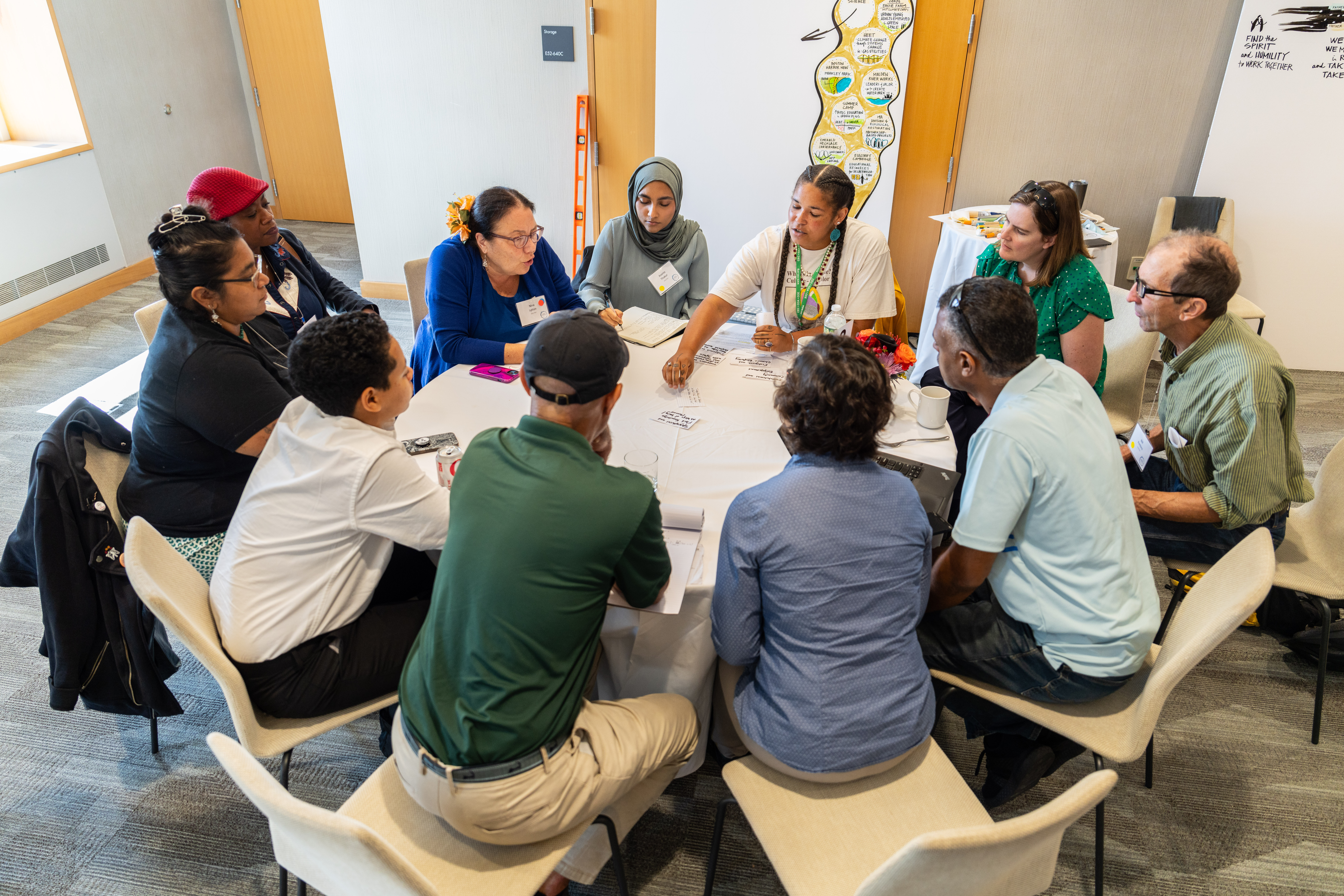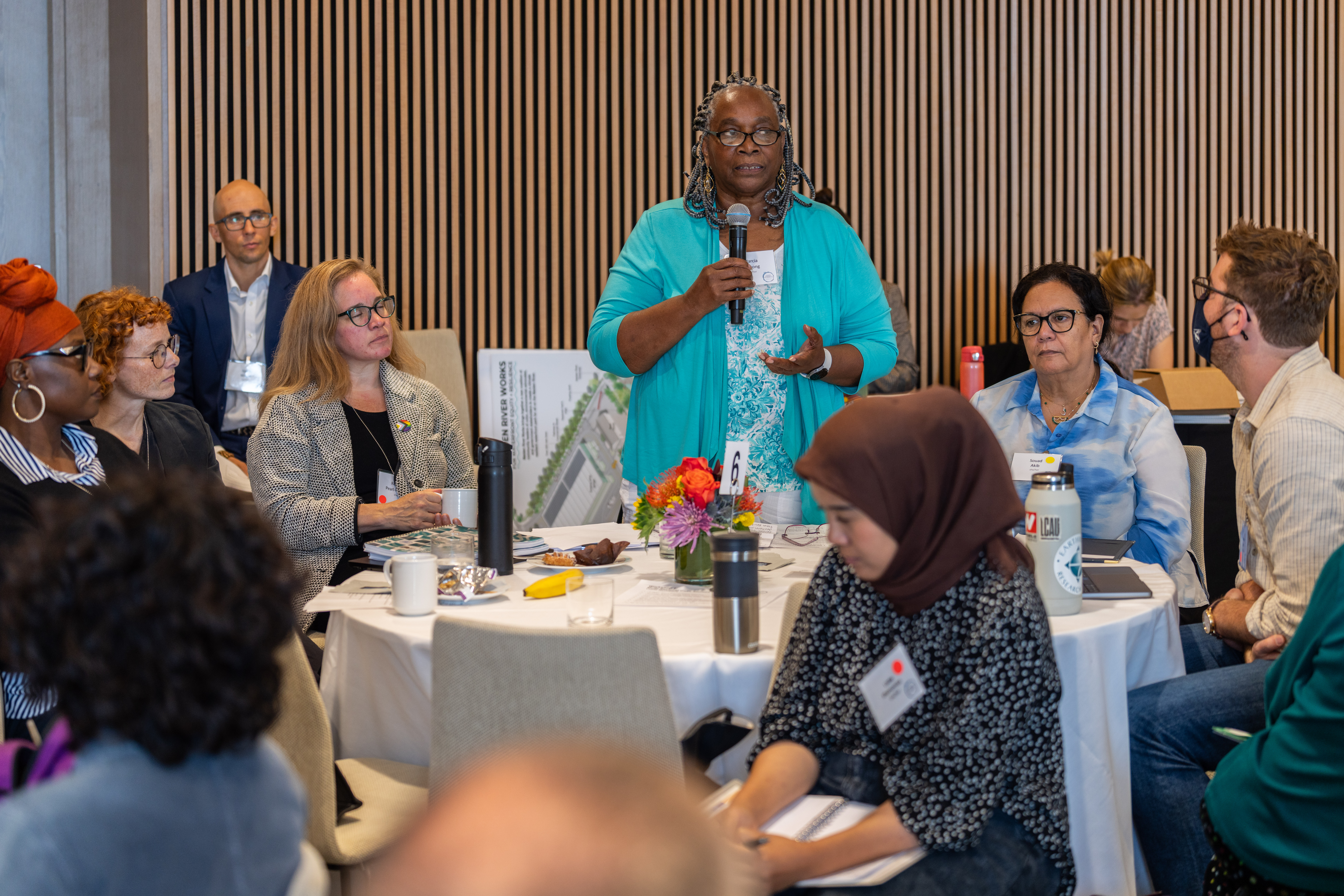Cities and Climate Change Initiative
Developing community-led tools for planning, policy, and finance
As climate change reorders the fabric of urban spaces, infrastructure must account for the impacts of heat waves, rising water levels, and extreme weather events. Cities will also need large-scale transformation to accommodate new modes of energy and transportation. To mediate these physical changes, and accompanying social changes, planners need community-led planning and policy tools and financing mechanism that can work across different spatial and temporal scales.
This initiative seeks to:
- Develop frameworks for more inclusive and equitable adaptation planning.
- Activate policy and financial vehicles that direct investment to at-risk areas.
- Assess how global cities are responding to climate challenges, including through the use of community-led planning approaches, and propose methods to better accommodate a range of social values and needs.
- Assist local governments to enact technologies and institutions (including financing mechanisms) that operate flexibly at different spatial and temporal scales.
- Better integrate critical infrastructural projects (e.g. sea walls, mobile buildings, micro-grids) into holistic planning, while balancing social, ecological, and economic systems.

Projects under this initiative include analyzing how socio-economic values shape development and reception of planning responses to climate change in cities such as Boston and New York. RCL works with city governments to analyze and develop policies that can better accommodate the local, context-specific physical needs of climate adaptation while maintaining social inclusion and equity.
In sites around Massachusetts, we have worked with policymakers, planners, and communities to design adaptation strategies that are grounded in values, operate over long-time horizons, and integrate social, ecological, and economic considerations.

Courses
11.373J DUSP Students / 12.385 Undergraduate / 12.885J Graduate
Science, Politics and Environmental Policy
Examines the role of science in US and international environmental policymaking. Surveys the methods by which scientists learn about the natural world; the treatment of science by experts, advocates, the media, and the public and the way science is used in legislative, administrative and judicial decision making. Through lectures, group discussions, and written essays, students develop a critical understanding of the role of science in environmental policy. Potential case studies include fisheries management, ozone depletion, global warming, smog, and endangered species. Students taking the graduate version complete different assignments.
11.170 Undergraduate / 11.270 Graduate
Cities and Climate Change: Mitigation and Adaptation
Examines climate adaptation and mitigation responses at the city level. Discusses factors of greatest concern in adapting cities to climate change, including infrastructure; energy, food, and water systems; health; housing; and environmental justice. Various city and regional cases are used to analyze how cities are mobilizing to face climate change and integrate core considerations into urban planning. Working on independent case studies, students analyze how cities make urban planning decisions with respect to climate adaptation. In the process, students practice analytical skills to better understand how urban policies are made, and how they can be improved. Students develop recommendations for making climate adaptation more effective and sustainable at the city level.
11.169 Undergraduate / 11.269 Graduate
Global Climate Policy and Sustainability
Examines climate politics both nationally and globally. Addresses economic growth, environmental preservation, and social equity through the lens of sustainability. Uses various country and regional cases to analyze how sociopolitical, economic and environmental values shape climate policy. Students develop recommendations for making climate policy more effective and sustainable.
11.387 Graduate
Environmental Finance and Political Economy
Examines the sociopolitical, cultural and economic dimensions of the financialization of environmental goods and services. Provides an introduction to key financial terms, practices, and institutions; analyzes the logics and origins of environmental finance, as well as the operation and implications of particular systems such as carbon-trading, REDD and ecosystem service pricing and swapping.
Past Courses:
DUSP 11.S951: Topics in Finance and Sustainability
DUSP 11.J004: People and the Planet: Environmental Histories and Engineering
Publications
Books
Knox-Hayes J. and D. Wójcik. (2021) Editors. The Routledge Handbook of Financial Geography. Routledge, New York.
Knox-Hayes, J. (2016) The Cultures of Markets: The Political Economy of Climate Governance. Oxford University Press, Oxford.
Reports
“Equitable Resilience Framework” (Click here to download)
“Designing a Climate Community Collaborative,” Greater Boston Area (2024) (Click here to download)
Articles
Bassens, D., Knox-Hayes, J., Lai, K., Pan, F., & Wójcik, D. (2024). Finance in the age of geoeconomics: intersections of finance, production, and digital technology. Finance and Space, 1(1), 542-555. (link)
Wójcik, D.; Bassens, D., J Knox-Hayes & Karen P. Y. Lai. (2024). “Revolution, evolution, progress: Finance & Space manifesto.” Finance and Space, 1:1, 1-12. (link)
Knox-Hayes, J., Osario, J.C, Stamler, N., Dombrov, M., Winer, R., Smith, M.H. Rosenzweig, C. and Reggie Blake. (2023). “The Compound Risk of Heat and COVID-19 in New York City: Riskscapes, Physical and Social Factors, and Interventions.” Local Environment. (link)
Knox-Hayes, J. (2022). “Built Up: Examining the origins and pathways of urban development.” in Symposium – Built Up: An Historical Perspective on the Contemporary Principles and Practices of Real Estate Development, by Patrice Derrington. London: Routledge (2021). Environment and Planning A: Economy and Space. April 2022. (link)
Knox-Hayes, J. (2022) “Combating climate change: Dismantling the spatial and temporal assumptions of the core and periphery.” Geographical Research. April 2022. (link)
Knox-Hayes J., Chandra, S. and J. Chun. (2020) “Conceptualizing sustainable development from the standpoint of values: the case of Iceland.” Sustainable Development. 1-15. (link)
Davies, A.R., Hooks, G. Knox-Hayes, J. and R. Liévanos. (2020) “Riskscapes and the Socio- Spatial Challenges of Climate Change.” Cambridge Journal of Regions, Economy and Society. (link)


